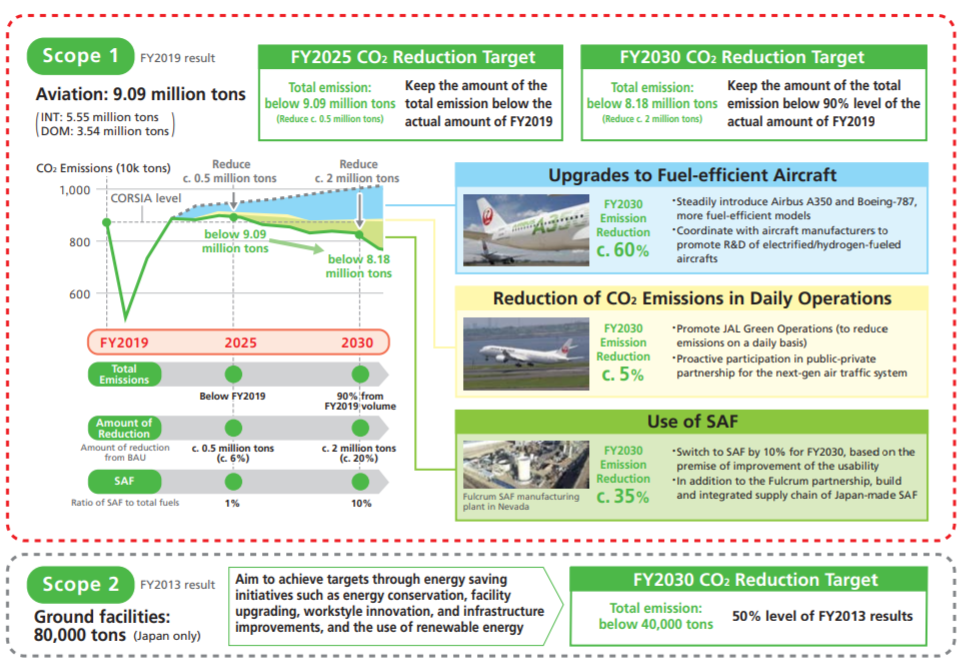JAL, the World’s First Airline to Issue Transition Bonds

Japan Airlines Co., Ltd. (“JAL”) today decided to issue the world’s first Transition Bonds in the aviation industry.
Transition Bonds, a category of SDG Bonds, are corporate bonds issued by companies who has developed strategies to achieve long-term goals that aligned with the Paris Agreement and will allocate the proceeds to initiatives that support the transition towards a carbon-free society. The Bonds are not only its first SDG Bonds, but also the world’s first Transition Bonds in the aviation industry. The Bonds were also selected by Japan’s Ministry of Economy, Trade and Industry (METI) as a model example for its 2021 Climate Transition Finance Model Project*1, marking the first initiative of a Japanese airline being selected. In addition, JAL has acquired a second party opinion on the alignment of its framework with the existing principles and guidelines from Sustainalytics, an external review provider operating worldwide.
JAL will make full use of the net proceeds of the Bonds to advance the transition to carbon-free operations in its air transport business and to redouble its efforts to ultimately achieve decarbonization.
*1 A project whereby METI provides information on and reduces the assessment costs for model examples in order to promote the spread of transition finance. METI selects model examples that conform to the Basic Guidelines on Climate Transition Finance formulated jointly by METI, the Ministry of the Environment (MOE), and the Financial Services Agency (FSA), and are deemed to have model qualities.
 1. Background to the Bonds Issuance
1. Background to the Bonds Issuance
In May 2021, JAL formulated the JAL Group Medium-Term Management Plan for Fiscal years 2021-2025 with the aim of overcoming the current COVID-19 pandemic and adapting to changes in the post-COVID operating environment to achieve sustainable growth and development.
In this management plan, JAL positioned “Safety and Comfort” and “Sustainability” as growth engines amid a time of upheaval accompanied by drastic changes in values. In order to achieve JAL Vision 2030, its ideal image of the JAL Group in 2030, it set ESG strategy as one of its three strategic pillars alongside business strategy and finance strategy.
As there is a growing momentum for society as a whole to pursue sustainability and realize true wealth and happiness, the JAL Group will promote ESG management more than ever in its business activities and work toward achieving the UN Sustainable Development Goals (SDGs) by 2030, targeting the realization of a sustainable society. In particular, reduction of CO2 emissions from aircraft is one of the most important issues in the aviation industry, given that air travel produces significantly greater CO2 emissions per unit than other methods of travel, and the public are strident in their demands that emissions be reduced. The JAL Group is aiming to achieve its target of net-zero CO2 emissions by 2050, primarily by upgrading its aircraft to fuel-efficient models that emit minimal CO2, and increasing the amount of Sustainable Aviation Fuel (SAF) for its fleet carries. This is one of the most ambitious targets of all airlines worldwide.
